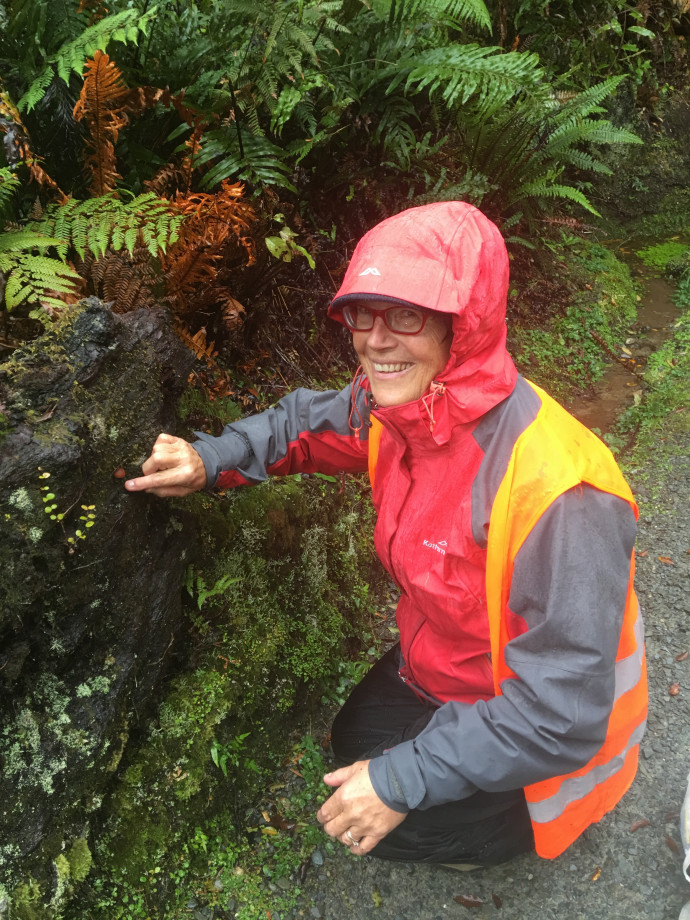Cockle Bay school - Bridget Bear

2018 | A Foray into Fungi
School: Cockle Bay
Host: Manaaki Whenua, Landcare Research (Auckland)
Region: Auckland
Cockle Bay School believes that students should be given opportunities to learn about the natural world in engaging, practical ways; full of interesting, authentic learning experiences that dove tail into other areas of the curriculum. The school benefits from another participant teacher, Gillian Taylor, currently leading phase 2 of the Science Teaching Leadership Programme (STLP), who will be joined by Bridget as the year progresses. This puts Cockle Bay in a prime position to enhance its science programme by moving towards a sustainable, more student led inquiry model where children are encouraged to look, wonder and investigate; and teachers are supported by professional development and mentoring to upskill their understanding of the Nature of Science.
Bridget has been teaching for fourteen years. During that time, she has taught both Year 1 and Year 3, and has been the Science curriculum leader at Cockle Bay for six years. Bridget has a keen interest in science and has undertaken a wide variety of professional development, from pragmatic hands-on modules to online graduate qualifications. During her time as curriculum leader, she has actively nurtured science within the school community through various initiatives such as a school science blog, weekly “science snippets” and lunchtime science clubs. Bridget is looking forward to enhancing the school’s science teaching and learning through the opportunities offered by the STLP, particularly linking the Science Capabilities and Nature of Science more emphatically together, so that science is infused seamlessly into all areas of student learning throughout the school.
Bridget has been hosted by Megan Petterson in the Systematic Team at Manaaki Whenua - Landcare Research (Tamaki Campus). She has been working with the Mycology Team, learning about bacteria and fungi. Her placement has involved managing cultures in the laboratory, collecting specimens in the field, team meetings, and attending bio-diversity lectures. This has given her a basic scientific knowledge of basic mycology and bacteriology, and a working knowledge of procedures and protocols out in the field and in the laboratory. It has also allowed her the opportunity to observe scientists engage in the Nature of Science in their work; staff at all levels collaborating to construct and promulgate scientific knowledge on a day to day basis.
A highlight for Bridget during her placement was taking part in the New Zealand Fungal Foray. This was a field trip, held over several days, to observe and collect specimens, learn and share knowledge about fungi growing in a particular region of New Zealand. This year, the foray was held by Lake Brenner in the Southern Alps. During the foray, Bridget participated in collecting and identifying mushrooms from five collection sites in the local area. She learnt about fungi ‘on the hoof’ in the field, and in the pop-up lab, with the support of experts. She also attended a colloquium day with talks on current research projects.
Another highlight was undertaking bacteriological research, and discovering microorganisms found in everyday things. Bridget isolated three yeasts and four bacteria from the popular drink, Kombucha. She also isolated 31 bacteria from the Onehunga lagoon, her local dog walk. Of these, 14 were deposited in the International Collection of Microorganisms from Plants (ICMP). This is a significant international resource for scientific research and holds more than 20,000 strains of bacteria and fungi from plants, the soil and the environment.
The Science Teaching Leadership Programme has provided Bridget with a unique blend of professional development: total immersion in a scientific organisation alongside learning modules to develop her science teaching and leadership skills. Bridget is looking forward to applying this learning to Cockle Bay School, and fostering a dynamic science culture where students and teachers explore, and care for, the world from a scientific perspective.
She would like to thank the Royal Society Te Apārangi, Megan Petterson and the Systematics Team at Manaaki Whenua – Landcare Research, and Cockle Bay School for investing time and resources in her.
